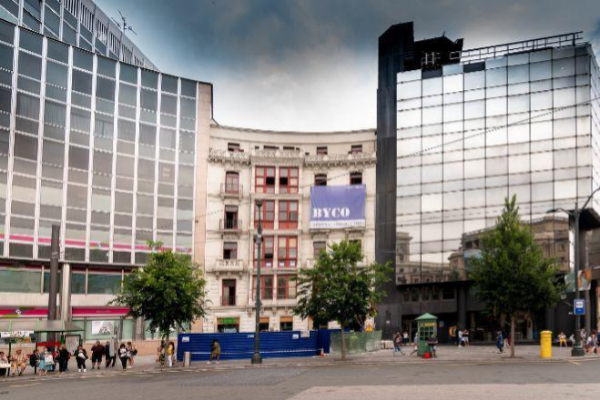Of the many indicators that give an idea of the progress of the economy, cement is one of them, much more in a country like Spain, where construction has had a traditionally high weight. Their consumption has begun to slow down, especially since the second half of 2019, and in the sector they warn that the braking is not only negative for them, but an alert message for everyone .
According to the data of the Association of Cement Manufacturers of Spain (Oficemen), the demand for this material closed last year at 14,254,420 tons, 5.9% more than in 2018, however, the growth rate is lower That previous exercises and what concerns them above all is the behavior since last July. "The evolution was up during the first six months of 2019, when it increased at a rate close to 11%, but stagnated in the second half, even with a slight fall in the accumulated from July to December of 0.2% , compared to the same period of 2018, "they point out from the organization.
The employer associates that slowdown to the "practical paralysis" of public works and the "brake" that is being registered in the building of housing . "With the public work practically paralyzed in our country, the main engine of cement consumption in recent years has been the building. However, the latest known data from the housing sector seem to go parallel to the cement consumption and point to a slowdown as well. of this subsector ", they explain from the grouping.
Residential development is stagnant and public work is minimal . The employer assures that the investment is close to 1% of GDP, compared to 2% of other surrounding countries, and they urge the new Government to "take measures in this regard", in the words of Víctor García Brosa, president of Oficemen.
Many projects are tendered, but there is no final execution of them and that begins to "penalize" the progress of the market. In spite of this, they assure that the problem does not come from now, but that it is the consequence of years weighed down by the bursting of the real estate bubble and the subsequent financial crisis.
"Everything is concrete"
In fact, the volume of cement consumed in the country in 2019 reached 14.25 million tons, far from the 57 million recorded in 2007, in full brick boom, and slightly above 11 million of 2011, when the minimum of the historical series was marked.
However, they ensure that this moment is crucial to reverse the situation and to reactivate projects and infrastructure that revert to the welfare of society. "Everything is concrete: hospitals, roads, water treatment plants ... Investing in improving or expanding this type of infrastructure is investing in everyone's improvement," they claim.
Cement factories are the first harmed in the production chain. Its capacity is 35 million tons, triple the current demand, and not only have to cope with the decline in Spain, but also the lack of competitiveness abroad; Last year alone, exports plummeted 23.1%.
Byco, in contest
The slowdown in cement is not something isolated in the sector. Based on data from the Informative DBK Sector Observatory (subsidiary of Cesce), the total production of the sector closed 2019 with a value of 129.9 billion euros, 4.7% more than in 2018, when it grew by 8.4%. Almost 50% reduction. The building activity as a whole, which stood at 110.7 billion euros in 2019, grew 5.3%, compared to 9.8% accounted for in 2018; On the other hand, civil works production maintained a growth of 1.1%, similar to that of 2018, reaching 19,200 million euros.
Despite the data, construction companies begin to draw attention to situations that affect them fully such as reducing margins, cost increases, lack of labor or conflict in the liquidations of certain works.
These factors are behind the situation of Byco , construction company of the Inberalia group that has been forced to request the voluntary bankruptcy of creditors before the Commercial Courts of Bilbao. The firm blames its situation on the "generalized crisis" of the sector and ensures that this situation has generated "difficulties" to meet the payment of the next due dates.
Byco was developing housing for several developers such as Inbisa or Neinor Homes, so it is designing a plan that contemplates "the guarantee of work payments to be executed to suppliers and the fulfillment of the commitments acquired with customers".
According to the criteria of The Trust Project
Know more- economy
- living place
ReportSareb, the metamorphosis of the 'bad bank': between brick drainage and rental problems
Housing Maximum rental prices only for vulture funds and banks
RentA floorless housing plan: the Ábalos for rent project finds a brake on other ministries

